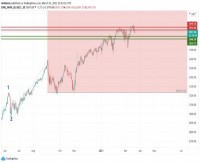|
Opalesque Industry Update - Today shareholders have access to mutual fund expense information via point of sale documents,
prospectuses, fund company websites and external data providers. While these sources allow
fund shareholders to determine the total expense ratio (TER), deconstructing that ratio to fees
collected by distributors, administrators and custodians, and what is retained by fund
management is not possible through current disclosure. ...Data made available to Strategic Insight in the EFAMA members’ survey provides valuable information about the various components of investment management fees and the total expense ratios. Seventeen EFAMA corporate members, accounting for over EUR 1 trillion in EU-domiciled equity and bond funds as of year-end 2010, were surveyed for this report. Key findings:
- FG |
Industry Updates
EFAMA report shows European fund managers retain 42% of total expense ratio
Friday, November 11, 2011
|
|





 RSS
RSS







